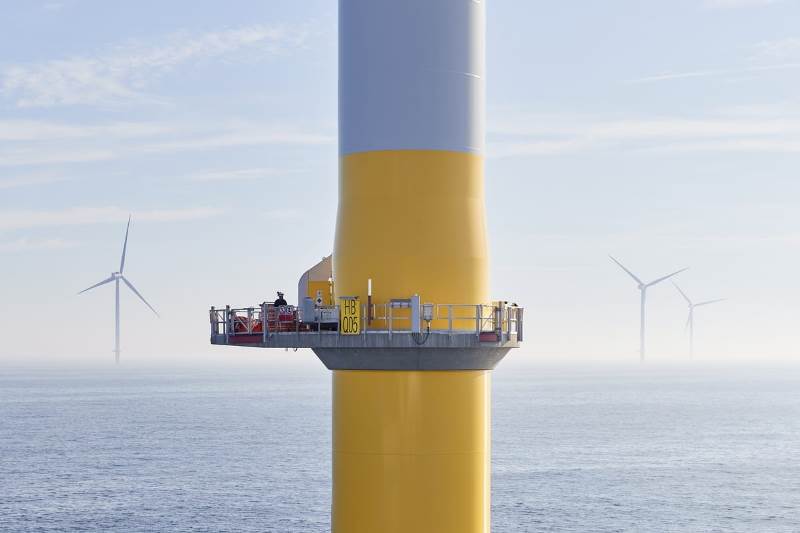Ørsted said that it was cancelling plans for the 2.4 GW Hornsea 4 project, off the coast of Norfolk, because the deal it agreed with the UK government just eight month ago no longer stacked up.
Since the contract for difference (CfD) award in allocation round 6 (AR6) in September 2024, the project has seen “several adverse developments”, the Danes said. These include a continued increase of supply chain costs, higher interest rates and an increase in the risk to construct and operate Hornsea 4 on the planned timeline.
Ørsted has decided to stop further spend on the project and terminate supply chain contracts.
It is continuing, however, with the neighbouring Hornsea 3 wind farm, on which construction began in 2023 and is expected to complete in 2026. Hornsea 3 will have a generating capacity of 2.9 GW. Ørsted also already has Hornsea 1 (1.2 GW) and Hornsea 2 (1.3 GW), operated out of its operations and maintenance hub in Grimsby. Hornsea 4 would have added another 180 turbines and 2.4 GW of generating capacity.
Rasmus Errboe, group president and chief executive of Ørsted, said: ”We remain fully committed to being an important partner to the UK government to help them achieve their ambitious target for offshore wind build-out and appreciate the work they’ve done to deliver a clear framework to support offshore wind. However, our capital allocation is based on a strict and value-focused approach, and after careful consideration, we’ve decided to discontinue the development of the Hornsea 4 project in its current form, well ahead of the planned final investment decision later this year.”

“We’ve been maturing the project over the past nine months and have been working relentlessly with stakeholders and suppliers to manage the different project risks for a project of this scale. Throughout the development phase we’ve been very diligent in our approach to capital commitment to our suppliers, and our committed capital is well below our threshold. The adverse macroeconomic developments, continued supply chain challenges, and increased execution, market and operational risks have eroded the value creation.”
He added: “I’d like to emphasise that Ørsted continues to firmly believe in the long-term fundamentals of and value perspectives for offshore wind in the UK. We’ll keep the project rights for the Hornsea 4 project in our development portfolio, and we’ll seek to develop the project later in a way that is more value-creating for us and our shareholders.”
Jane Cooper, deputy chief executive of trade association RenewableUK, said: ”Although it’s disappointing when a project is put on pause, the UK remains one of the best places in the world to build offshore wind farms, with a significant pipeline, clear ambitions for contracting large volumes through upcoming auctions and supply chain funding. The unique cost pressures faced by Hornsea 4 have led to a rethink on this particular project, and we need to do everything we can to keep a stable market for all other projects going forward.
”The UK is still a global leader in offshore wind with the second largest amount of operational capacity in the world and the second largest pipeline of future projects. It remains one of the most attractive destinations for private investment, thanks to a positive policy framework put in place by the government to ensure that offshore wind is at the heart of our future energy system, including a clear target to reach clean power by 2030, backed up by new reforms to planning.”
She continued: “The fact that supply chain constraints have been cited as one of the reasons for this decision highlights the importance of investing to support the UK companies across the wind value chain as a central part of the UK’s industrial strategy. We urge the government to remove uncertainty for investors in this year’s auction for new clean power projects by ensuring auction parameters reflect the cost increases we’re seeing in the supply chain and inflationary pressures. Additionally, government should rule out the introduction of zonal pricing which would drive the cost of investment up even further.”

